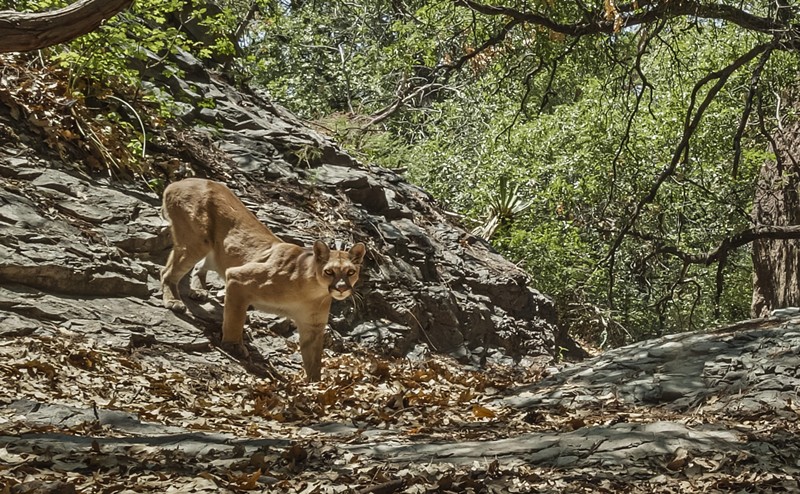Earlier this month, the organization submitted a petition for rule-making to the Texas Parks and Wildlife Department (TPWD) to demand that the state increase efforts toward mountain lion conservation.
The Lone Star State is the only one that permits mountain lion trapping, said Dr. Mark Elbroch, Texans for Mountain Lions coalition member and Puma Program Director for Panthera, the global wild cat conservation organization.
“Trapping in West Texas is the leading cause of mortality for all mountain lions studied to date, and the mortality rates are all well beyond thresholds biologists have determined for maintaining sustainable mountain lion populations,” Elbroch said by email.
Texans for Mountain Lions noted in a press release that in Texas, the nongame species can be hunted and trapped throughout the year without limits or reporting requirements. It’s led to some of the country’s highest mortality rates.
“Mountain lions are an iconic wildlife species in Texas,” wildlife filmmaker and coalition member Ben Masters said in the release. “Without any science or a management plan, mountain lion populations in some areas of the state may not be viable into the future.”
Masters added that the state can reach a balance between conservation and respect for Texas’ rich hunting and ranching heritage. But it needs to pursue data-driven solutions to make sure that mountain lions can live on.
These big cats once roamed free across the state, but they’ve since been pushed into remote areas in South and West Texas, the coalition said. Still, they’ve been spotted in North Texas in recent years, such as a Rowlett sighting in 2020.
Several studies have indicated that mountain lions’ mortality rate in Texas is high, Texans for Mountain Lions reported. In Big Bend Ranch State Park, 15 of 16 monitored cats perished in leg-hold traps after venturing onto private territory. The other one was shot.
TPWD deputy communications director Cory Chandler confirmed that the department had received the petition for rule-making. They’ll review it before making recommendations for the TPWD commissioners, who will then decide whether to take any actions."Science shows that mountain lions support biodiversity and ecological resilience, which in turn supports healthier human communities." – Dr. Mark Elbroch
tweet this
If Texans for Mountain Lions gets their way, the state’s wildlife department would adopt certain new regulations. Among other actions, they want Texas to introduce a requirement for harvest reporting. They’d also like to see studies on the status and size of the population, as well as mountain lions’ distribution statewide.
Most Texans reportedly endorse the idea of passing mountain lion regulations. Texans for Mountain Lions cited a recent survey in which 70% of participants said "efforts should be made to ensure the survival of mountain lions in Texas.” Another study published two decades ago detailed similar results.
In the recent documentary Deep in the Heart, viewers can take in Texas’ unique and diverse landscapes and wildlife, including mountain lions. The animal is a part of the state’s “rich conservation history,” Elbroch said, adding that many Texas schools have chosen wild cats and cougars as mascots.
On its website, Texans for Mountain Lions argued that passing regulations to safeguard mountain lions would benefit Texans and the state’s ecosystems. There's evidence to support that these big cats help to curb chronic wasting disease, an illness afflicting deer populations, which each year costs the wildlife management and hunting industries millions, Elbroch said.
But there are plenty of other reasons why Texans should care about preserving the animals. “Because science shows that mountain lions support biodiversity and ecological resilience, which in turn supports healthier human communities,” he said. “In other words, by their very presence, they support Texans and the natural heritage they so love and enjoy.”












